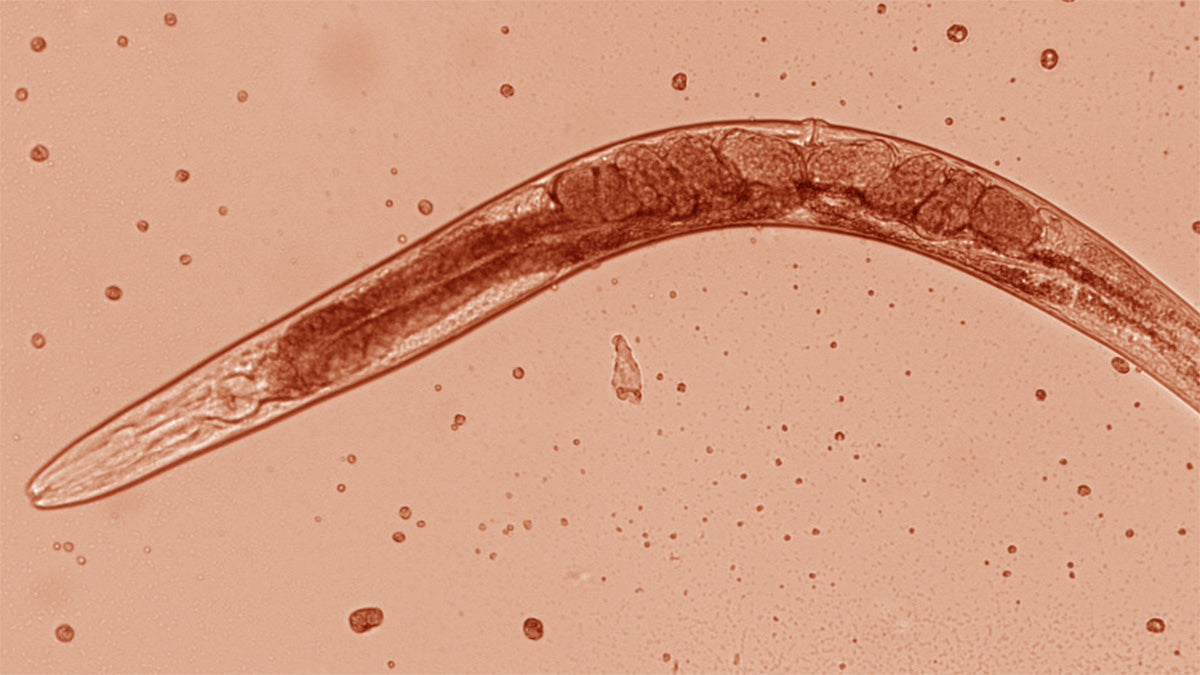Worm Lifespan Increased 500%, Humans Next?

In a spectacular experiment, the lifespan of laboratory worms (C. elegans) has been increased by 500 percent (see below). The increase in lifespan would be the equivalent of a human living for 400 or 500 years.
The molecular mechanisms (pathways) and networks involved in this breakthrough act synergistically, amplifying each other. "The synergistic extension is really wild," said Jarod Rollins, lead co-author of the study.
"The effect isn't one plus one equals two, it's one plus one equals five. Our findings demonstrate that nothing in nature exists in a vacuum; in order to develop the most effective anti-aging treatments we have to look at longevity networks rather than individual pathways."
“The discovery of the synergistic effect opens the door to even more effective anti-aging therapies,” notes a Mount Desert Island Biological Laboratory press release.
Of course, C. elegans are a far cry from humans. “But they do have many of the same genes that we do, which is one of the reasons they’re a fixture of aging research,” notes Futurism. “And now that scientists have figured out a way to dramatically extend the worms’ lifespans, they may be able to apply the knowledge to humans.”
Of course, this won’t happen overnight. But it’s good to see spectacular advances in aging research.
Lifespan Extended by 500 Percent in Worms
Scientists at Mount Desert Island Biological Laboratory, in collaboration with scientists at Buck Institute for Research on Aging and Nanjing University, have found a way to amplify lifespan fivefold in C. elegans, a nematode worm used as a model in aging research. A research paper published in Cell Reports describes two molecular mechanisms involved (known as insulin IIS and TOR pathways) and indicates that they act synergistically (amplify each other).
Stem Cells Rejuvenate the Brain in Mice
Researchers at TU Dresden have used a new method to stimulate the neural stem cells that reside in the brain in order to increase their number and the number of neurons generated by those stem cells. A study published in Nature Communications shows that the new neurons could survive and form new contacts with neighboring cells in the brain of old mice. The old mice with more stem cells and neurons recovered their lost ability to build a map of the environment and remembered it for longer times. When the neural stem cells were stimulated in the brain of young mice, cognitive impairments were delayed and memory was better preserved over the entire life of the mice.
Nanoparticle Immunotherapy Kills Cancer in Mice
Scientists at KU Leuven, University of Bremen, Leibniz Institute of Materials Engineering, and University of Ioannina, have found a way to kill cancer cells in laboratory mice using a nano-sized copper compound. Cancer cells are sensitive to copper oxide nanoparticles, a compound composed of copper and oxygen. Once inside a living organism, these nanoparticles dissolve and become toxic. A research paper published in Angewandte Chemie International Edition reports how, by creating the nanoparticles using iron oxide, the researchers were able to control this process to eliminate cancer cells, while healthy cells were not affected. After using the nanoparticles in combination with immunotherapy, the cancer did not return.
Nanoparticles Deliver Suicide Gene to Cancer Cells
Scientists at Johns Hopkins Medicine have developed biodegradable, lab-engineered nanoparticles able to successfully deliver a ''suicide gene'' to pediatric brain tumor cells implanted in the brains of mice. The poly (beta-amino ester) nanoparticles, known as PBAEs, described in a research paper published in Nanomedicine: Nanotechnology, Biology and Medicine, were part of a treatment that also used a drug to kill the cells and prolong the test animals' survival.
Nanotech Stimulates Immune Response to Sepsis
Researchers at Ohio State University have developed a way to prop up a struggling immune system to enable its fight against sepsis, a deadly condition resulting from the body's extreme reaction to infection. A study published in Nature Nanotechnology reports how the researchers used nanotechnology to transform donated healthy immune cells into a drug with enhanced power to kill bacteria.
Aspirin Can Protect Against Cancer
City of Hope researchers have found that aspirin appears to reduce colorectal cancer growth and inhibit recurrence of the disease. The findings, detailed in a study published in Carcinogenesis, suggest that the key is to determine the right dosage of aspirin that can be used as a daily prophylactic without triggering dangerous side effects such as stomach and brain bleeds.
More Articles
Don't miss a beat! In our Pulse Newsletter, Thrivous curates the most important news on health science and human enhancement, so you can stay informed without wasting time on hype and trivia. It's part of the free Thrivous newsletter. Subscribe now to receive email about human enhancement, nootropics, and geroprotectors, as well as company news and deals.
Read more articles at Thrivous, the human enhancement company. You can browse recent articles in Thrivous Views. See other Pulse Newsletter articles. Or check out an article below.
-
Maximize the Power of Caffeine with Occasional Use
We have seen many studies that show how caffeine may enhance cognitive and physical performance. Some supplements provide the greatest improvement ...
-
Moderately Great Expectations for the 2020s
Welcome to the 20-twenties! I have great expectations for the new decade, but it’s important to moderate one’s enthusiasm. Scientific ...


